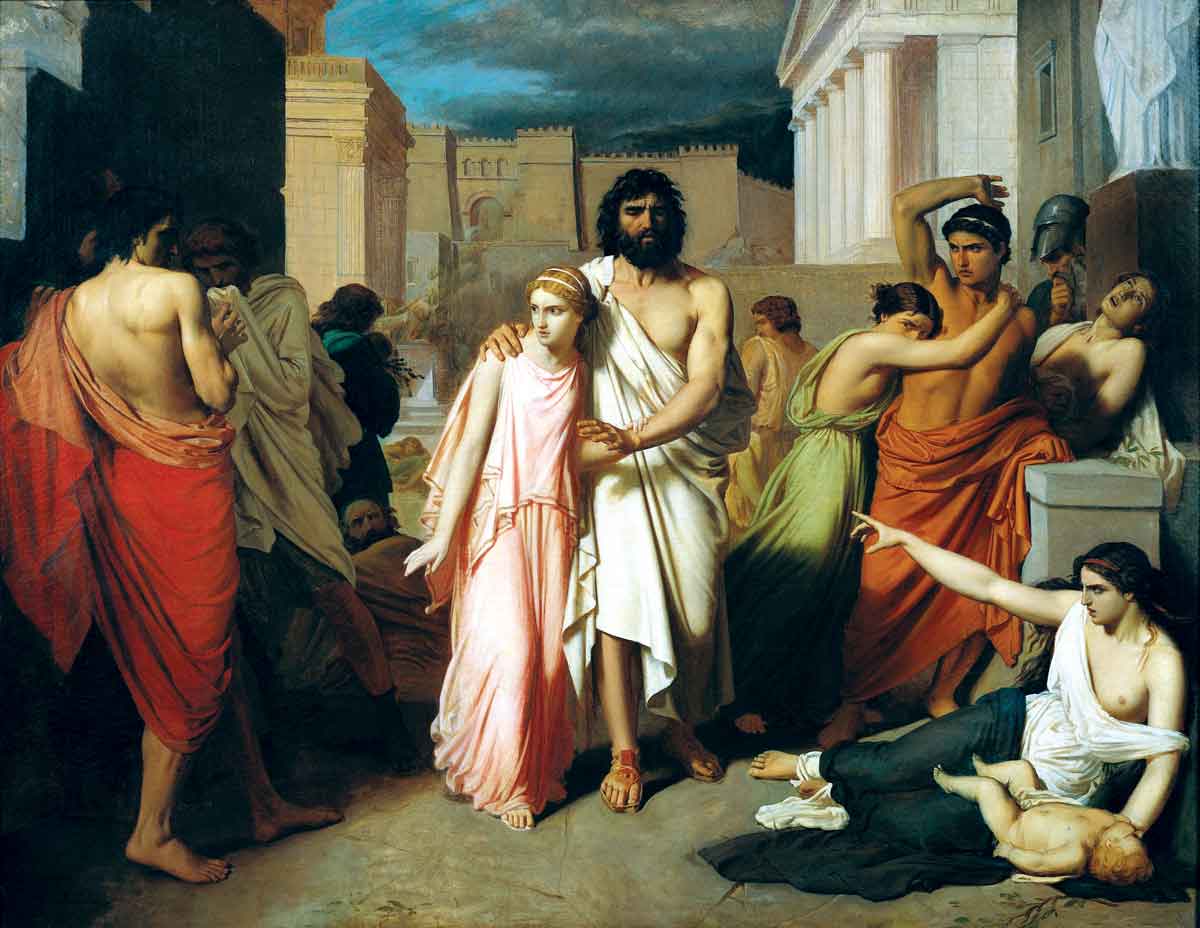Most Greek tragedies include a hero who is brought down by a fatal flaw. Most of the time they don’t even realize it until their downfall. While reading Oedipus the King, I was immediately able to pick up on Oedipus’s flaws. His excessive pride and arrogance shielded him from the consequences of his actions, but his impulsiveness and inability to make sounds decisions caused further problems.
Throughout the play, Oedipus refuses to consider the fact that he may be the reason behind all of the city’s suffering. He ignores Tiresias, the blind prophet, who hinted at Oedipus’s involvement in the curse. This shows his arrogance and blindness to his fatal flaw. His impulsiveness really came to show when he first hears about the death of King Laius. Oedipus quickly launched an investigation and promised to find and punish the culprit without knowing who it was. Little did he know he did it. Once the investigation opened up, he began quickly pointing fingers at other people. He accused Creon of going against him just because Creon wanted the Throne. His quick and impulsive actions strained his relationships and contributed to the whole unraveling of the tragedy.
Oedipus’s arrogance, hard-headedness, and impulsiveness all contribute to his downfall as he eventually fulfilled the prophecy that he would kill his father and then marry and have children with his mother. This revelation ruined his pride and led him to gouge his eyes out, leaving him blind. This symbolizes the consequences of his arrogant and impulsive behavior.
Sophocles- Oedipus the King Play

Oedipus and Antigone, or the Plague of Thebes, by Charles Jalabert, 1843, Musée des Beaux-Arts, Marseille © Bridgeman Images.